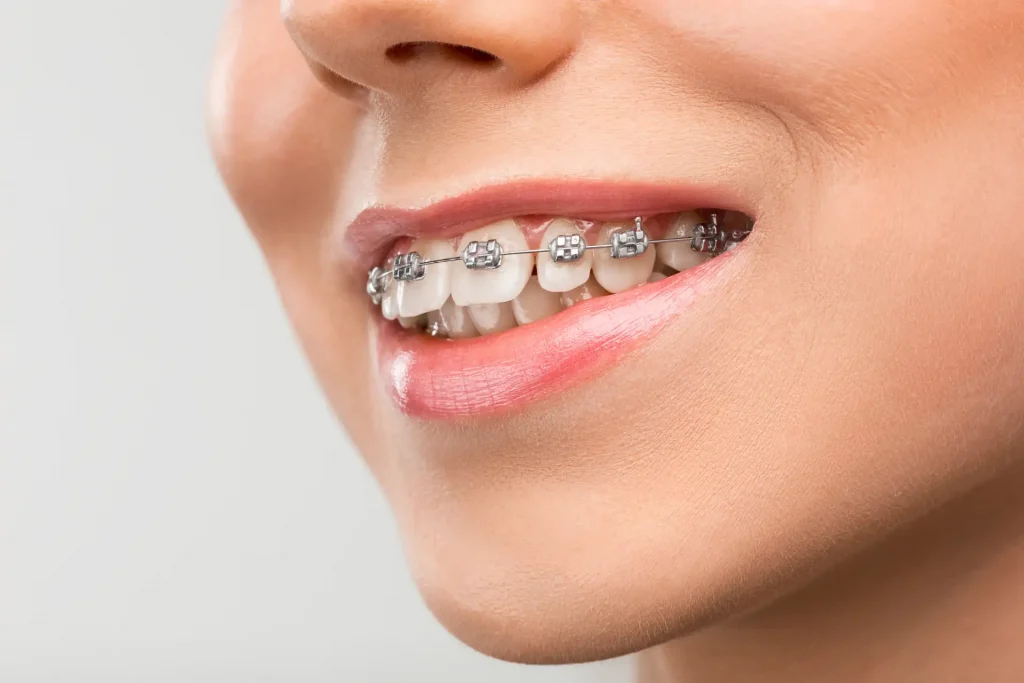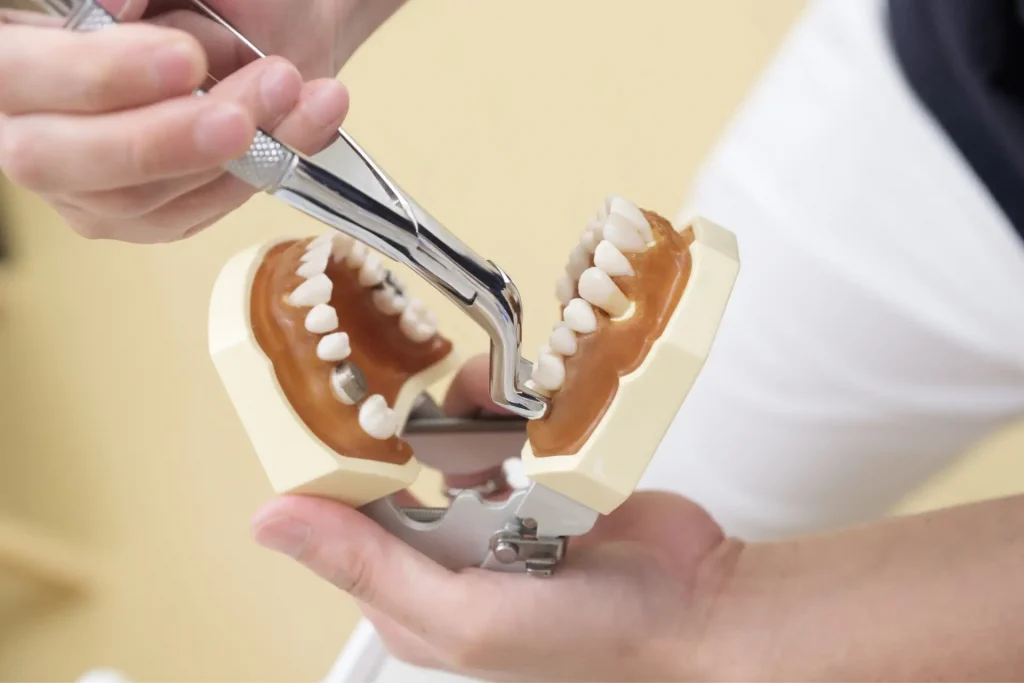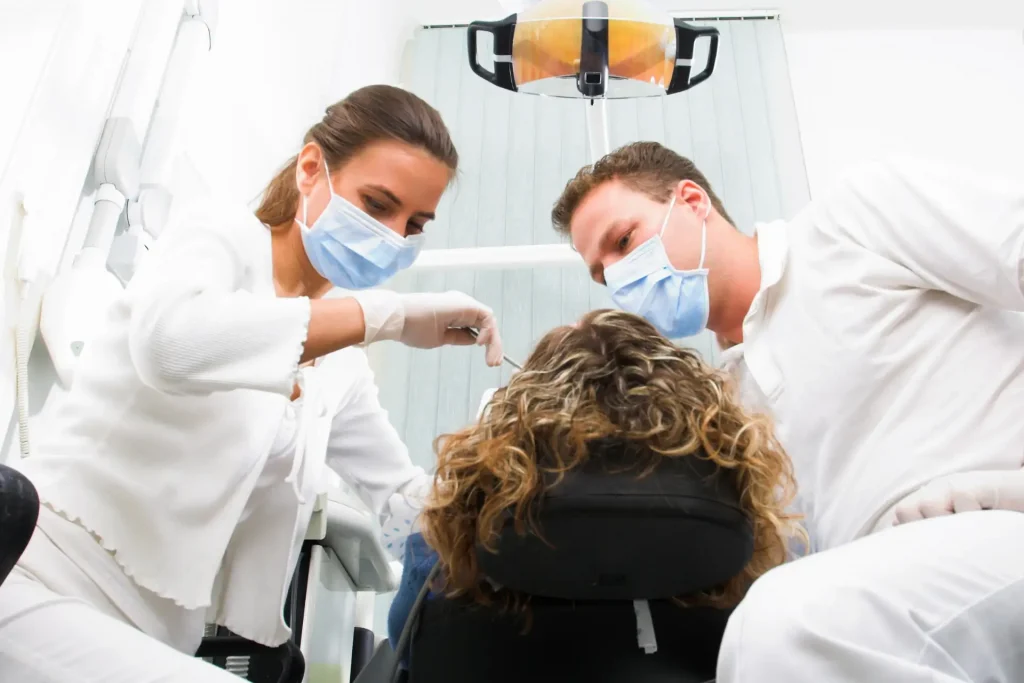
As a slight overbite is necessary for a bite to be considered ‘normal’, overbite is present in most people, to some degree. According to research, the average overbite is around 2.9mm, and around 8% of the population have a ‘severe’ overbite that exceeds 6mm.
Overbite refers to the vertical overlap that occurs between the upper and lower front teeth. In a normal bite, the front upper teeth cover ⅓ to ½ of the front lower teeth when the jaw is shut, usually between 2-4mm.
There are two kinds of overbite which are considered ‘malocclusion’, or misaligned bite. They are:
In general, if a person’s overbite covers more than ½ of their bottom teeth, they will likely require orthodontic treatment.
As some degree of overbite occurs in a normal bite, it can sometimes be a challenge to spot the malocclusion. This is especially true in cases of deep overbite, where the top teeth only cover around 4mm of the bottom teeth.
Here are some symptoms that can present when a person has a deep or severe overbite:
Overbite is often the result of skeletal or dental issues. Here are some of the most common causes of overbite:
Like other forms of malocclusion, overbite can be passed down through generations, and most cases result from skeletal (genetic factors). The most common cause of overbite is the shape and size of the jaw and teeth. Typically, there is either too little room in the lower jaw, or too little room in the mouth for the teeth to grow.
Being born with extra teeth can also result in overbite.
Several childhood habits can also cause overbite, such as:
Overbite can also be caused by other health problems, such as:
Deep and severe overbites can lead to several health problems, both physical and mental. If left untreated, an overbite can lead to:
A very pronounced overbite causes the upper jaw to protrude much further than the lower jaw. The condition will give a person a disfigured appearance and significantly impact their self-esteem, leading to mental health problems. Their appearance may also hold them back in social and professional situations.
Overbite can severely impact a person’s ability to eat properly, posing challenges when chewing or biting off pieces of food. This means that a person with overbite is at a higher risk of choking and biting their cheek and tongue when eating. They are also likely to be more reliant on certain groups of teeth, which can lead to chipping or cracking. This premature erosion of the teeth is also likely to result in the need for dental implants or crowns later in life, and incur hefty dental bills.
The gap between the teeth that can occur in overbite can interfere with the correct placement of the tongue while speaking. Too much air can escape while talking, which can create a whistling sound. Lisp is also a common speech impediment that occurs with overbite.
The recessed jaw that occurs in overbite can result in breathing problems, particularly when sleeping. The narrow, recessed lower jaw can obstruct the airway, leading to sleep apnea – where a person stops breathing momentarily throughout the night. In turn, this can lead to extreme exhaustion, decreased cognitive function, and even mental disorders such as depression and anxiety.
Because overbite is sometimes caused by dental crowding, it can be difficult for a person with the malocclusion to brush and floss their teeth effectively. This can lead to the buildup of plaque and bacteria, and result in conditions like gingivitis and bleeding gums.
If gum disease is left untreated, it can develop into a more severe form of the condition, known as periodontal disease. This serious infection can result in tooth loss, and can even seep into the bloodstream, putting a person at higher risk of stroke and heart disease.
Many people with overbite get into the habit of mouth breathing, which can lead to chronic bad breath, known as halitosis. This happens because of a decrease in saliva production as the mouth dries out. The saliva can not cleanse the mouth and remove food particles and other debris, creating a bad odour in the mouth as a result.

Braces are the first port of call for most overbite cases, and advances in technology mean that most kinds of braces can now treat deep overbite. Depending on what a person is looking for, certain braces may be better for a patient than others. For example, if a person wants to conceal their braces, then lingual braces might be the best option. If they don’t mind whether or not their braces show, then ceramic, self-ligating, or even traditional metal braces could be a good solution.

Clear aligners have been gaining immense popularity over the past few years, offering the benefits of comfort, removability, and discreetness. They work to move the same way in as traditional braces, and can treat most forms of malocclusion, including overbite.

In overbite cases where crowded teeth cause the problem, tooth extraction may be a necessary part of the treatment process. Removing teeth can make room in the mouth for the remaining teeth to align properly in the mouth.

Although rare, surgery may be required in severe cases of overbite. Treating the condition in childhood can reduce the likelihood of a person needing surgery. An expert dentist or orthodontist will be able to advise you if you need surgery.
If you suspect you have an overbite or any other form of malocclusion, you should book an appointment with a dentist or orthodontist. Catching and treating malocclusions will prevent health complications from arising as a result, and give you the confidence that comes with having a great smile. Why not book a consultation with one of our dental experts?